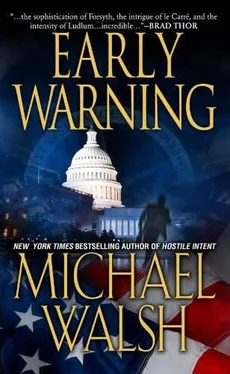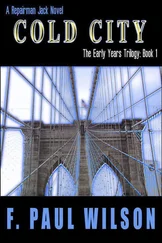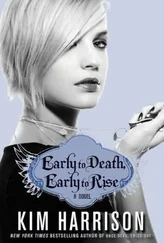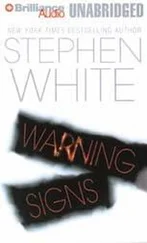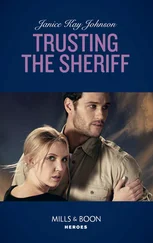Michael Walsh - Early Warning
Здесь есть возможность читать онлайн «Michael Walsh - Early Warning» весь текст электронной книги совершенно бесплатно (целиком полную версию без сокращений). В некоторых случаях можно слушать аудио, скачать через торрент в формате fb2 и присутствует краткое содержание. Жанр: Триллер, на английском языке. Описание произведения, (предисловие) а так же отзывы посетителей доступны на портале библиотеки ЛибКат.
- Название:Early Warning
- Автор:
- Жанр:
- Год:неизвестен
- ISBN:нет данных
- Рейтинг книги:3 / 5. Голосов: 1
-
Избранное:Добавить в избранное
- Отзывы:
-
Ваша оценка:
- 60
- 1
- 2
- 3
- 4
- 5
Early Warning: краткое содержание, описание и аннотация
Предлагаем к чтению аннотацию, описание, краткое содержание или предисловие (зависит от того, что написал сам автор книги «Early Warning»). Если вы не нашли необходимую информацию о книге — напишите в комментариях, мы постараемся отыскать её.
Early Warning — читать онлайн бесплатно полную книгу (весь текст) целиком
Ниже представлен текст книги, разбитый по страницам. Система сохранения места последней прочитанной страницы, позволяет с удобством читать онлайн бесплатно книгу «Early Warning», без необходимости каждый раз заново искать на чём Вы остановились. Поставьте закладку, и сможете в любой момент перейти на страницу, на которой закончили чтение.
Интервал:
Закладка:
Byrne thought much of Project Hostile Intent was typical Washington bullshit, the kind of gee-whiz crap that got gobs of money thrown its way, but at its core was simply good old-fashioned police work, the kind that used to be SOP across the country before the ACLU and its fleet of lawyers sank their teeth into the cop on the beat. In a normal civilian setting, “pre-crime” would be laughed out of court, dismissed on all sorts of procedural grounds, with the racism flag fluttering ominously in the background. The program relied heavily on facial expressions and body language, but also employed a battery of sensors that could read body temperature and brain waves; it had even developed a laser radar to monitor pulse and breathing rates from a distance. Now dubbed FAST, for Future Attribute Screening Technologies, the program was still in development, but was being discreetly deployed at various airports and other ports of entry around the country.
Byrne had simply stolen it. Lannie and his handpicked crew had installed advanced prototypes at key points around Manhattan-at Wall Street, City Hall and the Tweed Courthouse, Brooklyn Bridge, Gracie Mansion (the mayor, who took everything personally, had insisted on that), and, of course, in Times Square. It was mind-numbingly boring to spend half your life watching people go about their daily business, or lack of it; but it had to be done, if only as a complement to the computers that never tired of monitoring human beings, finding them as endlessly fascinating as cows watching traffic on a country road.
The CTU’s computers were outfitted with advanced facial-recognition software, in part developed right here in Chelsea and-not being hampered by the strictures of political correctness or probable cause-the CTU was empowered to act on whatever information, leads, and hunches the combination of men and machines developed. Byrne had drilled into his men that they were to stay out of the courts if at all possible, which was why dead-solid takedowns never got reported, either into the main NYPD database or, God forbid, to the media. Terrorists had rights in every court and police precinct in America, except here. Sure, there were mistakes from time to time, but they either were hushed up, paid off, or buried in unmarked graves.
“Okay, let’s play catch-up,” said Byrne.
On the screens, everything was as it had been ten minutes earlier. Out in the command room, teams were busy retro-tracing the DoS tracks, piecing together a model that would help prevent future blindsides. But that was barn-door stuff; right now, Byrne was more interested in what was going to happen next.
“What’s your hunch, Captain?” asked Saleh.
“ Times Square.” It was less a hunch than a wager he would take to Vegas. Nothing would shout maximum impact more than an attack on Times Square. Nobody in America cared about the mayor, or even knew where Gracie Mansion was.
Brooklyn Bridge was iconic, but would be plenty tough to bring down, especially with the unadvertised but very real police boat presence on both sides of the East River. If a dog so much as took a dump on the bridge, the likelihood was that the cops knew about it before the pooch’s owner did.
All at once, sixteen different angles of Times Square jumped onto the screen. Nobody said a word as they scanned the crowds. The usual: tourists gawking, theater crowds milling, a few hookers trolling, pickpockets sniffing the wind. Gazing at the human comedy day in and day out, Byrne often thought that it was a miracle that cities existed at all, that citizens were not constantly at each other’s throats, the hunters and the prey, but in this jungle the ratio of prey to predator was thousands to one, and so ignorance, and the law of averages, was bliss.
“What’s that?” said Byrne, pointing. “Gimme a zoom.”
It was a pushcart vendor. Normally, no big deal. There were pushcart vendors all over the city and had been for two centuries. But this guy was different.
For one thing, he was running. Vendors paid the city for their allotted spaces, but these were general licenses. There was no need to rush to your spot, like a homeless guy who had dibs on a certain step of one of the West Side Protestant churches, which now functioned as impromptu shelters for those too proud or too strung out to enter a real shelter. But this guy was out of breath. He was also doing something even fishier-he was looking at his cell phone like his life depended on it.
“Nobody’s in that big a rush to sell hot dogs,” said Byrne. “Let’s snuggle up a little closer to this baby.” Lannie zoomed in. Although the cameras shot in black and white, they could clearly relay facial features, skin tone, even hair color.
Now the man was doing something hot dog vendors didn’t usually do. He put down his cell phone and opened up his cart, but didn’t appear terribly interested, for all his haste, in the presence of customers. Instead, he was fiddling with something under the cart.
“Who’s in the area?” asked Byrne. “What units, foot, horse-what’ve we got?”
Sid was already punching up the data. NYPD cops in Manhattan never went anywhere without GPS locators on them, which really cut down the time they could spend with their girlfriends and mistresses, but which meant that One Police Plaza brass and others could find them instantly. At first the cops had bitched about it, but after a couple of lives were saved in officer-shot situations, they quickly came around.
“Couple of Tacs over on Eighth, Johnson, Guttierez, Adderly and Kemp between 42nd and 45th, and Bradley and Petrovich on the ponies.”
“Converge,” said Byrne, rising. “On the double.”
Byrne was already through the door of his office and into the command center by the time Lannie and Sid saw what he had seen.
Protruding from the hot dog vendor’s waistband as he got up from underneath his cart was the unmistakable grip of a.45 automatic.
CHAPTER THIRTEEN
Times Square
Jake Sinclair’s face was forty feet high on the JumboTron above Times Square, smiling at some joke only he was privy to. Since he pretty much owned the media in the U.S., that was not an outrageous supposition. Underneath his picture, the Zipper was proclaiming to the world: WITH BLAST AT TYLER, SINCLAIR HOLDINGS SELLS MANHATTAN HEADQUARTERS TO GERMAN MEDIA CONSORTIUM. CORP. HQ TO RE-LOCATE TO LOS ANGELES.
Those who looked up at the JumboTron at that moment would have seen Sinclair, speaking now, praising Tyler ’s rival in the upcoming election. “The Tyler Administration,” he was saying, “has forfeited all claims to credibility. The attacks last year on the homeland proved that this administration is not to be trusted with our national security. Despite his gross and flagrant violation of civil liberties, President Tyler has not kept us safe and, in my opinion, it’s time for a change. That’s why every patriotic American should send a message to Tyler and his party at the polls this November. Not just ‘throw the bums out,’ but hell yes, throw the bums out.” He smiled the oleaginous smile that had made him a favorite of most of the media, for Jake Sinclair had long ago learned the first and most important lesson of Hollywood, which had since translated to journalism: if you can fake sincerity, you’ve got it made.
“I hate that sonofabitch,” said Morris Acker to his wife, Shirley, indicating Jake Sinclair on the JumboTron as they traversed the new pedestrian zone and waited to cross over to 42nd Street. They were heading for the New Amsterdam theater, where Mary Poppins was still playing. Once upon a time, this had been the crossroads of the world, the place where Broadway and Seventh Avenue intersected, collided, and then split to go their separate ways. In the old days-the very old days-it had been a mass of pedestrians, pushcarts, horse-drawn vehicles and motorcars, but gradually order had been imposed upon civic chaos. Now, where traffic once had rushed, pretty girls sat and gawked at the buildings while the boys sat and gawked at them. Meanwhile, cars fought for space in the few lanes still allotted to them. It was a typically lunatic idea of the former mayor, a nasty little busybody who had finally been driven from office when he attempted to raise the price of pizza to prohibitive levels on the grounds that it would improve the health of the average New Yorker. Then he raised the subway fare, on the grounds that people would be even healthier if they had to walk forty blocks instead of spending five bucks for a subway ride.
Читать дальшеИнтервал:
Закладка:
Похожие книги на «Early Warning»
Представляем Вашему вниманию похожие книги на «Early Warning» списком для выбора. Мы отобрали схожую по названию и смыслу литературу в надежде предоставить читателям больше вариантов отыскать новые, интересные, ещё непрочитанные произведения.
Обсуждение, отзывы о книге «Early Warning» и просто собственные мнения читателей. Оставьте ваши комментарии, напишите, что Вы думаете о произведении, его смысле или главных героях. Укажите что конкретно понравилось, а что нет, и почему Вы так считаете.
